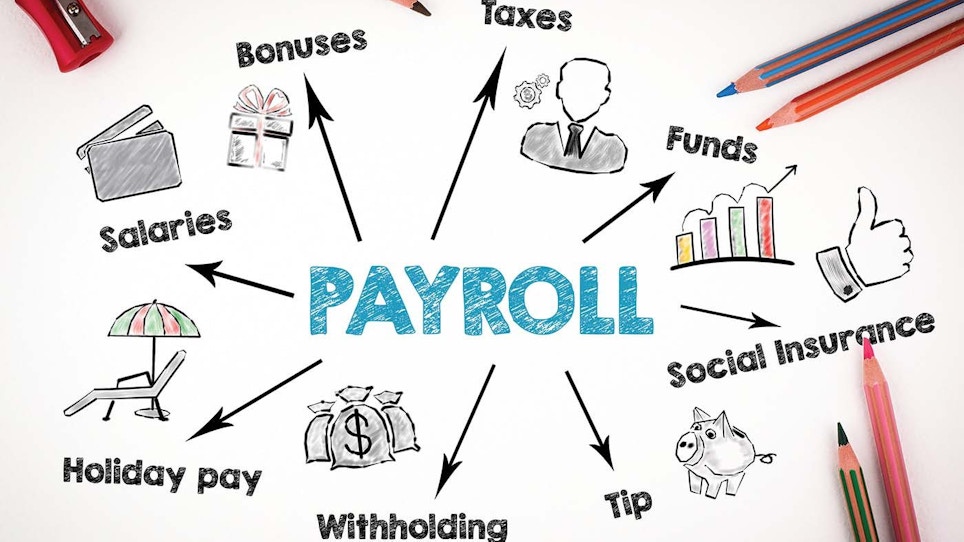If you have a growing business, chances are you’re adding employees. Hiring other people to work for you can be a sign of success and the key to continued growth. It can also be — let’s face it — a bit of a headache.
You want to be sure people are paid on time and the proper amount. That’s obvious. And you want to make sure you stay out of trouble with the many state and federal laws that come into play. Are you following laws about overtime? Withholding the correct amount in taxes, Social Security and Medicare contributions? What about making sure that personal employee information is maintained securely so you don’t wind up accidentally enabling an identity thief to take advantage of your employees?
And even if you manage to stay on top of those responsibilities, there’s also the fact that embedded in all your payroll information is a lot of potentially valuable intelligence that you could use to deploy your staff more efficiently and run your operation more smoothly.
Many small employers manage to master all of those challenges and at least get by. Some may train a clerical staffer in all the necessary skills to do the job. Computer software packages are available that can help smooth the way as well. But for some businesses, the answer might be a payroll service.
Payroll Firms
Third-party firms that take care of issuing paychecks and make sure the employer is properly following financial and other elements of the employment laws and regulations aren’t just for big employers. Companies that specialize in this service are interested and able to work even with very small employers of 10 or fewer workers.
“With all the deductions and insurance benefits and taxes — state, local and federal — and things like garnishments on people’s wages, using a payroll service honestly is a no-brainer,” says Matt Timberlake, president of Ted Berry Co., a New England contractor. His firm has been using a payroll service for 27 years.
There are several payroll service companies available. Among the most prominent are ADP and Paychex. Both companies serve employers of all size but have specific segments aimed at the smallest companies.
For ADP, the small-business unit is called Run Powered by ADP and serves companies with zero to 50 employees, says Scott Leiman, the product marketing manager for that segment.
Leiman points out that one way a service can be really helpful is administering payrolls for a small but widely dispersed workforce, perhaps a handful in each of several different states. The data systems for a payroll service can ensure that all of those states’ laws are followed properly in withholding the proper taxes for the employees based in those states.
Run Powered by ADP also has broader human resources services available for an extra fee. And the company can also provide solutions for retirement programs, health and other benefits, and worker’s compensation insurance, Leiman says. For some of those, several small employers can be bundled into a larger risk pool, potentially lowering their individual premium costs.
Run Powered's services are based largely on the internet and do not require the client firm to install its own software.
“It’s a secure platform,” Leiman says.
And because of the company’s national reach, “we have a large team who are involved in compliance — not just the 50 states, but for municipalities,” he adds.
Paychex is another payroll service company, and one that specializes in the small and midsize employer market. About 80 percent of clients have fewer than 20 employees. And half have fewer than five. Paychex clients are assigned a payroll specialist accessible around the clock via a call center. The company’s services range from strictly payroll administration to broader HR services and, at the more complex level, serving as a “co-employer” under a contractual arrangement with the client. That service can allow small companies to offer more complex and expensive benefit packages at generally cheaper rates than they could on their own.
Fees and Offerings
Fees for payroll services vary. Charges may be based on a flat percentage of the payroll or on a per-employee basis. Additional services, of course, cost more. In choosing a payroll service, get clear information on how you’ll be charged and what the total will be for the services you purchase.
Timberlake advises taking your time and reviewing carefully the offerings of various providers when choosing one. And don’t underestimate the complexity or time involved in making a change.
“The devil in the details is with what payroll company you select, and how you set it up really is based more on the sophistication of the financial systems that your individual business uses,” he says. “The biggest value with a payroll system is simply the compliance. However, the real value comes in how effectively that system communicates with our other systems — our project management system and our financial management system.”
But even with that challenge, it’s likely to be worth the change if you manage it properly, he says.






